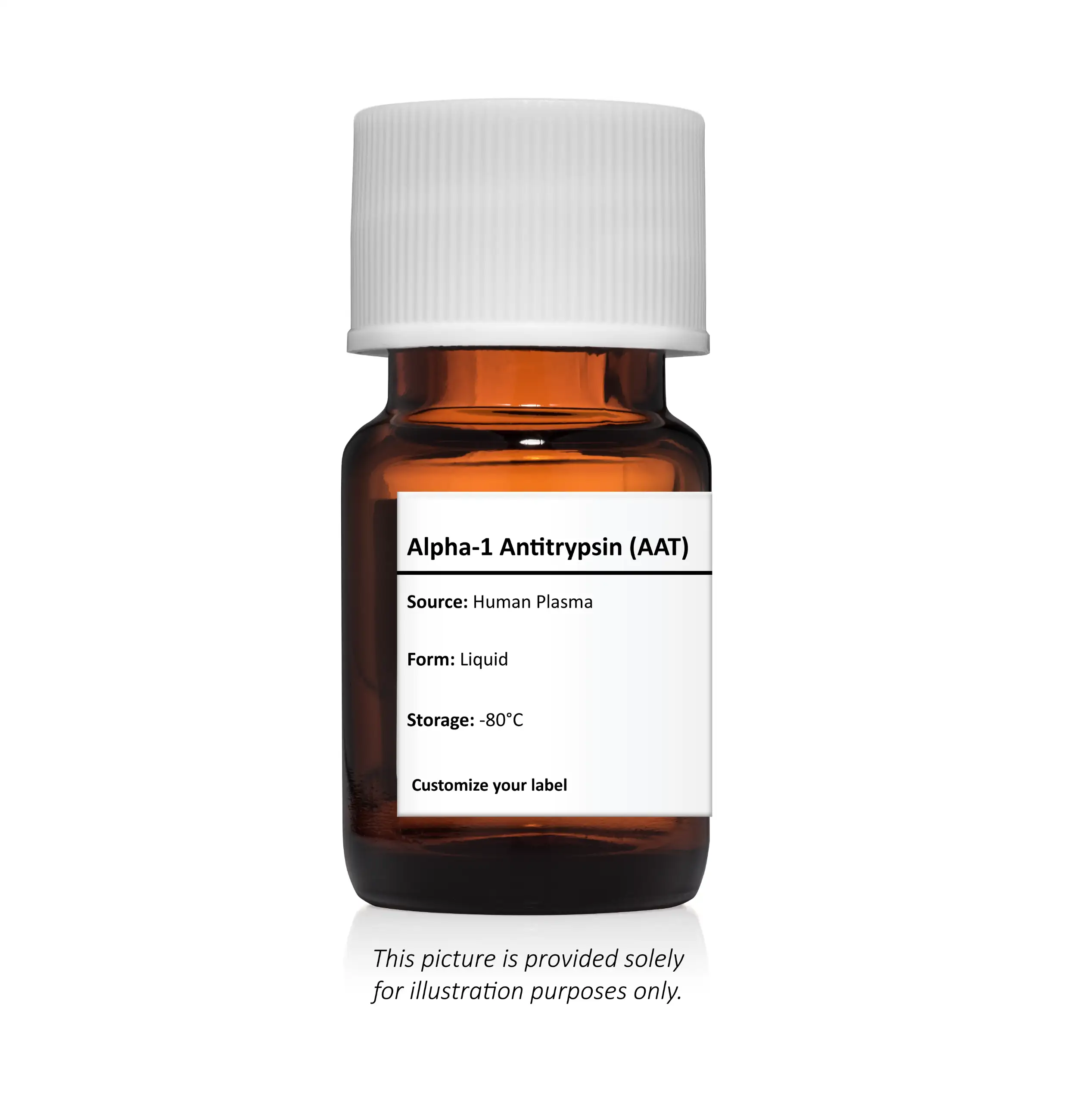Alpha-1 Antitrypsin (AAT)
Alpha-1 Antitrypsin (AAT) is an inhibitor of the serine protease trypsin but can inhibit many other proteases as well, and is thus a general serine protease inhibitor or serpin.
| Product Specifications | |
|---|---|
| Source | Human Liver |
| Form | Liquid |
| Purity | Partially Purified |
| Storage | -80°C |

Alpha-1 Antitrypsin (AAT) is an inhibitor of the serine protease trypsin, but can inhibit many other proteases as well, and is thus a general serine protease inhibitor or serpin. AAT is a protein that migrates in the alpha-1 region on serum protein electrophoresis. It is produced by the liver and is one of the classical acute phase response proteins with serum levels increasing during states of acute inflammation. As a protease inhibitor, its main role is to prevent undesired proteolytic degradation. AAT is particularly important in inhibiting neutrophil elastase in the lung. The absence or deficiency of this inhibition leads to morbidity and mortality in a variety of respiratory conditions. AAT can also act as an anti-inflammatory agent and can directly modulate the immune response in various ways, effecting the proliferation of lymphocytes and the function of other immune system effectors such as monocytes, neutrophils and cytokines such as TNF-alpha15-18. The measurement of serum AAT levels can be clinically useful for a variety of conditions, the most obvious being AAT deficiency, a disease usually caused by any one of a number of genetic mutations. AAT deficiency can result in early severe emphysema and cirrhosis and other diseases of the liver due to uninhibited proteolytic activity in these tissues. The measurement of AAT and various AAT complexes has also been reported to be useful in the diagnosis, prognosis and in monitoring of other specific pathologies, though few have gained widespread use.
